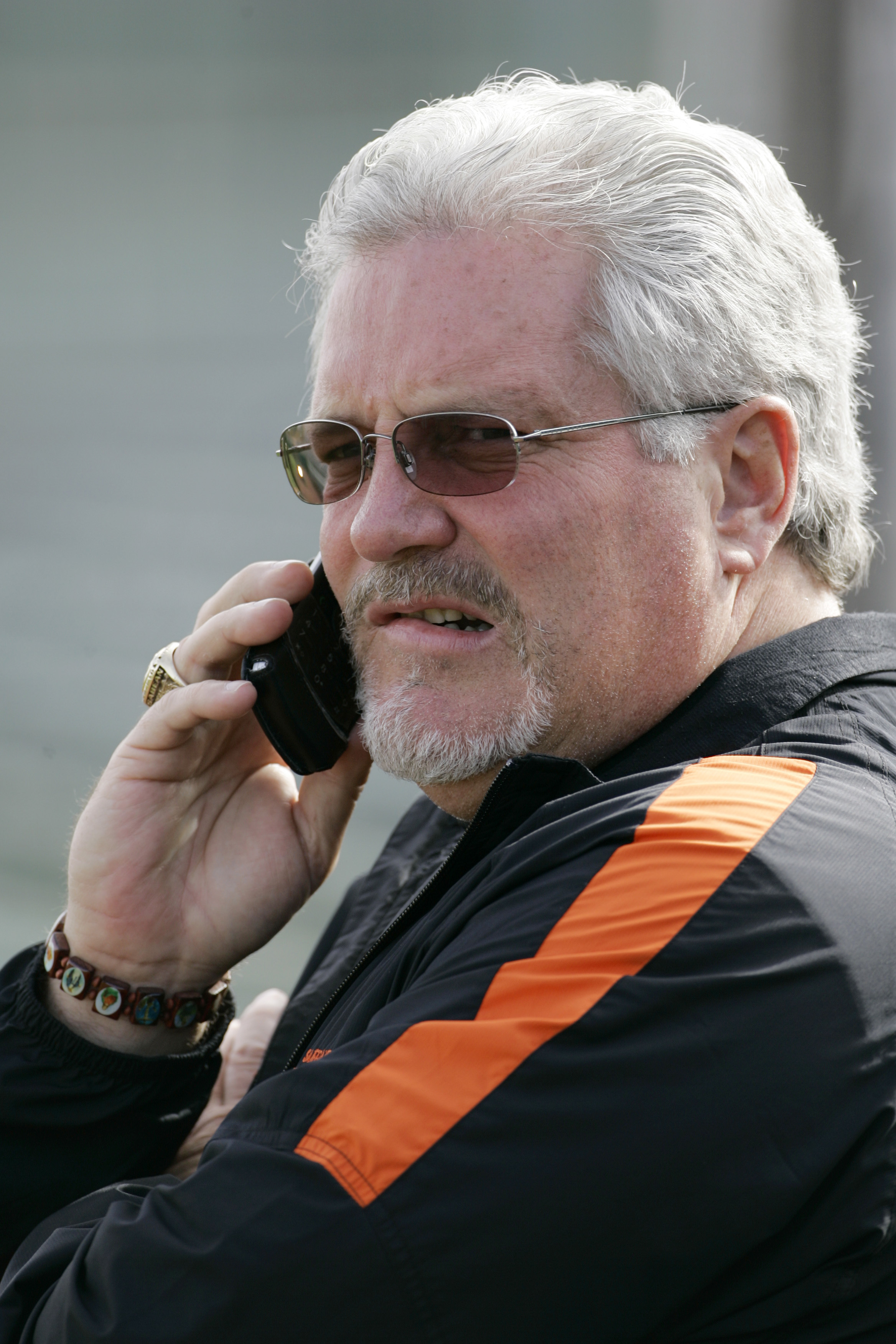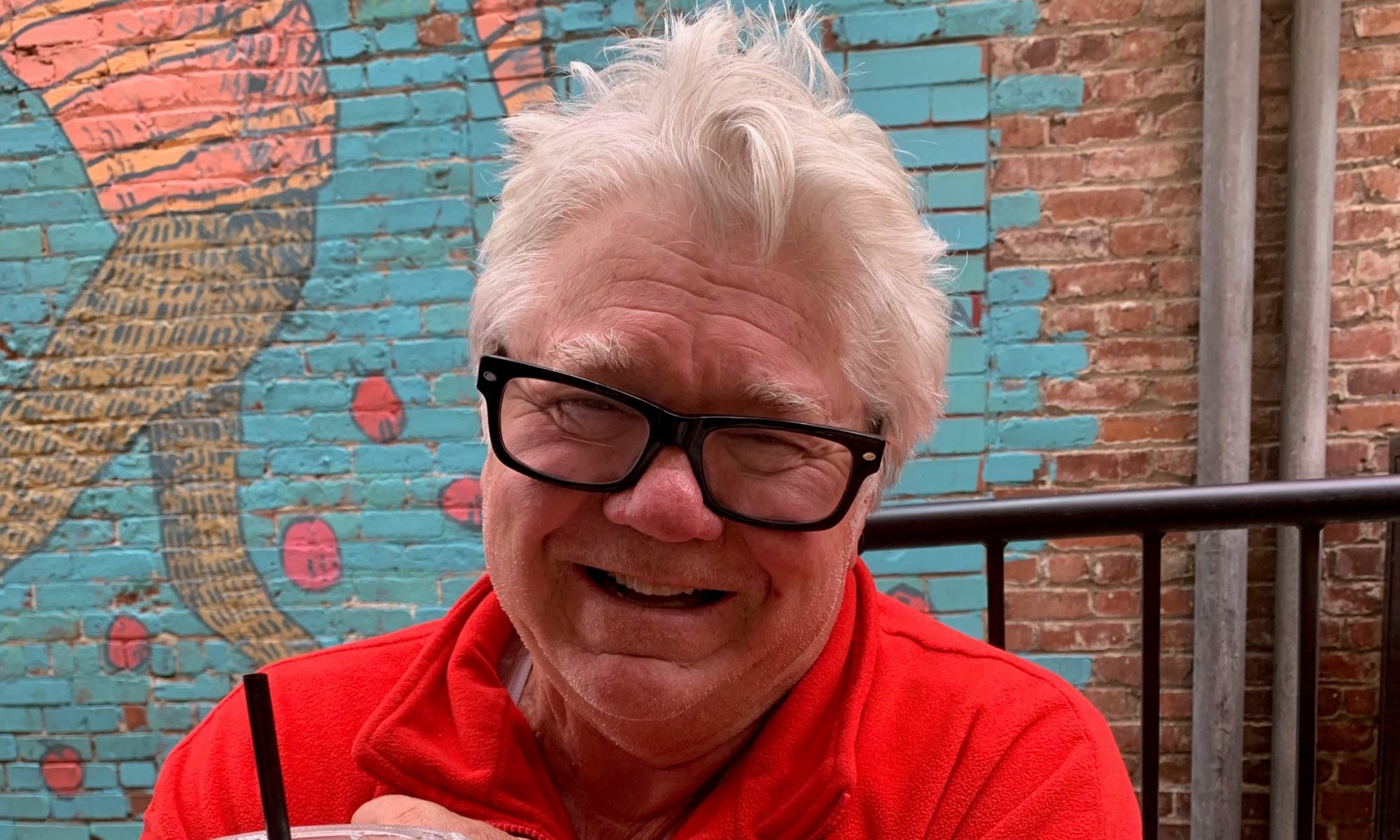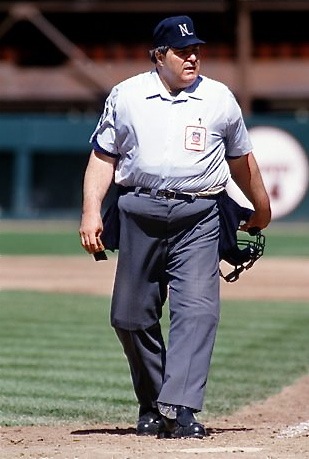This is part of a series of mini-Redlands Connections. This is Part 3 of the series, Quick Visits. Magic Johnson and John Wooden showed up at the University of Redlands as part of a Convocation Series. Future NFL Hall of Famer Tom Flores, baseball Hall of Fame pitcher Ferguson Jenkins, former NBA player John Block, legendary high school coach Willie West showed up. There are others. Cazzie Russell, for instance, came to Redlands with an NCAA Division III basketball team from Savannah, Ga. Russell, out of Michigan, was the NBA’s overall No. 1 draft pick by the New York Knicks in 1966.
Today’s feature: San Francisco Giants’ General Manager Brian Sabean.
No interviews with this guy. I had a job to do and Brian Sabean was being a Dad.
It was my habit to cover University of Redlands football games from the visitors’ grandstand.
NCAA rules prevented me from being on the sidelines in between the 30-yard-lines. It’s OK. I understand. That’s reserved for players, coaches and referees. But I needed better vision.
In the school’s well-constructed press box, there was too much unprofessional behavior, cheering and one-sided decorum (footnote: Maybe that’s all changed in later years), rooting for favorable Bulldog plays, snarling at officiating calls — you get the picture.
You might not think it gets in the way, but it’s a distraction in covering highly-competitive games.
It chased me to the visiting side’s grandstand.
On a sparkling, cold Saturday night, Redlands was playing Occidental College, from Eagle Rock near Pasadena, in 2008.
Game about to start. Both teams ready. Appearing out of the stairwell was a familiar face. As a lifetime San Francisco Giants’ fan, I couldn’t believe who I’d spotted. What in the world was Brian Sabean doing at Redlands? This was football, not baseball.

Quickly, I scanned Oxy’s roster.
Sean Sabean, a six-foot, 210-pound freshman linebacker from San Mateo Serra High School, was on the Tigers’ roster. It was Brian’s son.
What a great Dad, I thought. Redlands? This was an out-of-the-way location, for sure.
I had a list of questions formulating for Sabean — if only I could get to him. I was covering a game. On deadline. He wasn’t working.
The San Francisco Giants had just parted ways with Barry Bonds. Years of getting close, including a 7-game World Series loss to the Angels in 2002, had frustrated Giants’ fans everywhere.
Sabean, who had brought in Bruce Bochy as their manager, had started rebuilding the Giants with draft picks like Tim Lincecum, Matt Cain and Madison Bumgarner. Buster Posey and Brandon Crawford would soon come onto the scene.
The questions, among others:
- Barry Bonds.
- Performance enhancing drugs.
- Scouting, drafting ball players.
- Any trades he might be working on.
- Free agents.
Sabean was constructing a team that would win three World Series championships in the coming years.
At Redlands, 2008. I watched him disappear into Occidental’s bleacher crowd, then returned my gaze to the field. The Tigers and Bulldogs were ready to pounce on one another.





